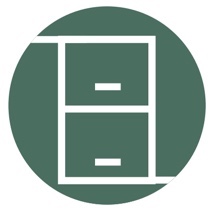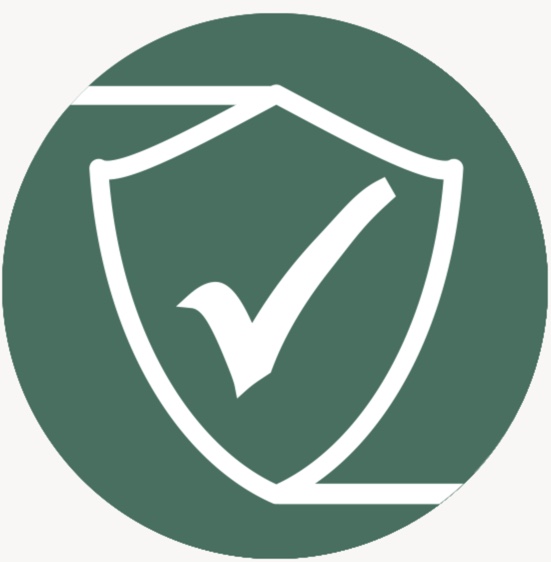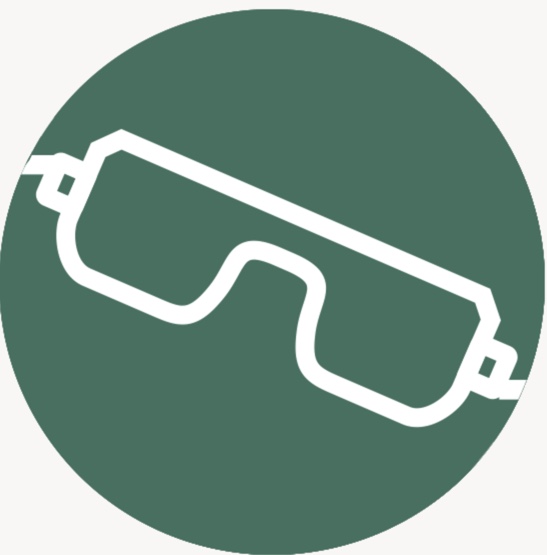Contents
- Who We Are
- Central Fabrication Accreditation at a Glance
- Eligibility Criteria
- Application Information
- Accreditation Survey Process
- The Onsite Survey
- Accreditation Decisions
- Accreditation Fees
- Maintaining Accreditation
- Accreditation Standards and Compliance Tips
- Organization (OG)
- Business Records (BR)
- Record Keeping (RK)
- Human Resources (HR)
- Warranty and Recall (WR)
- Safety and Equipment (SE)
- Quality Assurance (QA)
- Customer Satisfaction (CS)
- Resources and Links
- Pre-Application Checklist
- Onsite Survey Checklist
©2025 by the American Board for Certification in Orthotics, Prosthetics & Pedorthics, Inc. All rights reserved.
No part of this document may be produced in any form without written permission of the American Board for Certification in Orthotics, Prosthetics & Pedorthics, Inc.
Central Fabrication Accreditation Guide
October 2023
Onsite Survey Checklist

Once you are confident that you have met the eligibility criteria, it’s time to prepare for your onsite survey. The following information will help you prepare your records and facility for your surveyor.
The checklist is organized by standard to help you reference each item in the Central Fabrication Accreditation Standards.
This is not a complete list and is not intended to replace your thorough knowledge and understanding of the standards. Now would be a good time to re-read the standards and make sure that you are familiar with what your survey will encompass. This checklist is intended to highlight some of the areas that tend to be overlooked during preparation for the accreditation process.

Organization (OG)
The following items are required for your business and your surveyor will physically check that you are in compliance with the following. You should have all necessary documents organized and available for the surveyor to review.
- Articles of Incorporation, or other documents establishing legal formation of the company such as your business license (if applicable.) (OG1)
- Current Certificates of Occupancy and Inspection, as required by your state or local regulations. Examples may include, but are not limited to a business license from your city or county, zoning or occupancy permit, sales tax license, fire department permit or registration with the FDA, if applicable. (OG4)
- A written Policies and Procedures Manual that illustrates how your business’s activities are executed. (OG5)
- You have a mission statement for your business and it is part of your policy manual as well as available in your facility and/or posted on your website. (OG6)
- You have documentation of your business leadership roles. (OG7)
- There is documentation that you have complied with the applicable sections of the Americans with Disabilities Act (ADA). (OG8)
- Business has a dedicated laboratory consistent with services offered. (OG10

Business Records (BR)
The Business Records Standards address the establishment of policies and procedures related to business operations:
- Policies and procedures on business operations that are available to staff. Examples may include, but are not limited to, standard operating procedures and employee handbooks. (BR1)
- Accounting Policies (operating budgets, revenue and expense tracking, other documents that show your ability to manage the financial aspects of the business). (BR2)
- A written plan that demonstrates the actions you have taken to secure your records and also allows for quick retrieval. (BR3)
- A method to meet the requirements of the Healthcare Insurance Portability and Accountability Act (HIPAA). (BR4)
- You can demonstrate that your records will not be jeopardized due to disasters and that you have a back-up plan to recover records. (BR5)

Record Keeping (RK)
Your surveyor will look to validate that you have appropriate record keeping. They will check to make sure you have the following:
- A written policy that explains your procedure for creation, storage and maintenance of records, including, but not limited to, how job or work orders are created, records are entered into the tracking system, records are updated during the fabrication process and how records are securely stored. (RK1)
- Records that include all communications with customers, such as change orders. (RK2)
- Records that include detailed descriptions of the item/device fabricated and the components incorporated. The detailed descriptions may include, but are not limited to, work orders, type of device, materials used, components used and fabrication timeframes. (RK3)
- Documentation proving that you have a system to track devices that were provided to customers. (RK4)
- A procedure for providing the customer with an expected time frame for delivery of requested items/devices. (RK5)
- Documentation that each item/device meets the manufacturer’s guidelines or other specifications prior to delivery. (RK6)

Human Resources (HR)
Your surveyor will review the following human resource items:
- Your policy explaining the requirements and personnel qualifications for your employees, including detailed job descriptions, required certifications and/or licenses as applicable, required experience and continuing education requirements. (HR1)
- Proof that your business is staffed with a certified individual in the discipline(s) that you provide services during your hours of operation. (HR2)
- Documentation that you have provided orientation and training to your staff on all of your facility procedures. (HR3)
- Verification that your staff’s credentials and state licenses are checked annually to ensure that they are current and in good standing. (HR4)
- Documentation that you conduct an annual review of each staff member’s job performance. (HR5)

Warranty and Recall (WR)
Your surveyor will check to make sure policies and procedures are in place that cover the following:
- Item/device failures and product recalls. (WR1)
- Your response in the event that a customer reports an item/device failure. (WR2)
- Data collection procedures related to item/ device failures and how you respond to product recalls. Data may be collected from the following: customer work orders, complaints, visual defects or employee feedback. Your policy needs to include how you will identify and notify all customers affected by the recall. (WR3)
You will also need to show the surveyor that your business has policies in place to provide your customers with the following information:
- Warranties and care instructions for items/ devices. (WR4)
- Proof that all items from outside sources were obtained without fraud or deceit. (WR5)
- Disclosure in the event that any used components, not supplied by the customer, are incorporated in any items/devices. This may be through labeling on the item/device or direct communication with the customer. (WR6)

Safety and Equipment (SE)
You will need to make sure that you are in compliance with the following items related to the safety of your employees and equipment.
- You have a written safety management program that describes the procedures you have taken to reduce risk of injury. (SE1)
- Your annual safety inspections have been conducted, evaluated and any necessary corrective actions were taken. (SE2)
- Documentation that all employees receive safety management orientations. (SE3)
- You have a procedure in place for the appropriate cleaning of your facility and equipment. These procedures should include staff training, even if you use an outside cleaning service. (SE4)
- You have a process for training your staff on appropriate hazardous waste disposal procedures, including federal, state and local requirements. (SE5)
- You have an established Emergency Evacuation Plan for fires and emergency situations. (SE6)
- You have conducted an emergency evacuation drill for all staff members, including those working different shifts. Fire suppression and/or alarm systems testing was included, if applicable. (SE7)
- You have a written evaluation of the effectiveness of your emergency evacuation drill. (SE8)
- Your Disaster Preparedness Plan is designed to manage the consequences of natural disasters. (SE9)
- If you have any specialized emergency equipment on your premises, such as an Automatic External Defibrillator (AED), you must provide documentation that your staff has been trained in its use. (SE10)
- Your facility’s no smoking policy is posted. (SE11)
- You have implemented an equipment management program that includes inventory and maintenance training for staff. (SE12)
- You have documentation of the training you provided to appropriate staff on the safe use of equipment. (SE13)
- Your equipment maintenance includes an inventory of all equipment and a log to identify the maintenance of each item. (SE14)
- Your written policies and procedures address occupational exposure. (SE15)
- You maintain a current file of Safety Data Sheets (SDS). (SE16)
- Your cross contamination risk policy documents the proper handling of items that have come in contact with a patient. (SE17)
- You have a written policy that addresses the use of Personal Protective Equipment (PPE). (SE18)

Quality Assurance (QA)
Every business must have an effective quality assurance plan. The following items should be included in your plan.
- A written assurance program that examines and evaluates the quality of the services you provide. (QA1)
- You have a method to collect, record and measure data in order to identify fabrication errors. (QA2)
- Written analyses of shipping and billing error trends that you use to make corrections to your processes and procedures. This analysis needs to be written and maintained in an appropriate file. (QA3)
- Documentation that you have employee participation when assessing the qualities of your business operations. (QA4)
- Corrective/preventative actions are documented when identified. (QA5)

Customer Satisfaction (CS)
Your surveyor will be looking for your customer satisfaction survey process.
- You have created and implemented a customer satisfaction survey that includes, but is not limited to, questions addressing satisfaction with the quality of services, resolution of complaints and timeliness of response to the customer. (CS1 & CS2)
- All returned surveys have been documented, evaluated and the outcomes are reviewed at least annually. (CS3)

Other Reminders
Outside your Facility
Take a close look at your building entrance–look for the following:
- Handicapped spaces in your parking lot are clearly indicated.
- Hours of operation are posted and visible from the exterior of the building
Inside your Facility
Make sure that the following documents are posted and easily accessible:
- Business License
- Sales and Use Tax permit (when required)
- Each Individual’s Certification and/or License
- Emergency Numbers
- Automatic External Defibrillator (AED), if applicable and other medical emergency instructions
- Fire Evacuation Maps
Laboratory Area
In your lab area your inspection will include, but is not limited to, the following:
- Current file of Safety Data Sheets (SDS)
- Personal Protective Equipment (PPE) is in use for all appropriate staff
- Fire exit instructions are clear, concise and visible
- Your equipment is properly maintained
- Your no smoking policy is posted in a visible area

What you can Expect from the Onsite Survey
Your survey will be scheduled with you in advance. Upon arrival, your surveyor will identify that they are from ABC and will present you with their photo identification badge.
Initial Interview
First, you’ll have a brief interview with your surveyor. You can expect the surveyor to:
- Discuss the purpose of the survey and go over the schedule
- Answer any questions you may have about the survey process
- Determine the general layout of the facility
What your Surveyor Will Do
To verify that you have met the requirements of ABC’s Central Fabrication Standards, your surveyor will look at and focus on the following items and areas:
- Your business’s Policies and Procedures Manual
- Personnel files
- Accounting and bookkeeping records
- Contracts with vendors
- Fire and emergency evacuation plans
- Customer satisfaction surveys and survey analysis
- Information on device delivery times
- Employee interviews
Closing Interviews
After your survey has been completed, your surveyor will brief you on their findings and make any suggestions for overall improvement.
- You will have plenty of opportunity to clarify or submit any information that may not have been available during the survey.
- Your surveyor may have suggestions that could help you comply with the standards; this is your chance to talk to the surveyor one on one. Please take notes as this is a great opportunity to discuss your survey findings with the surveyor.
- Your surveyor does not know whether you passed the survey or not and is not permitted to discuss your specific results.
All significant recommendations and deficiencies will be discussed with you. The final Survey Report will be sent to you from ABC.
For additional information about the Central Fabrication Accreditation program, please don’t hesitate to call us at 703-836-7114 or email accreditation@abcop.org.

Thank you for choosing ABC for your accreditation program!






